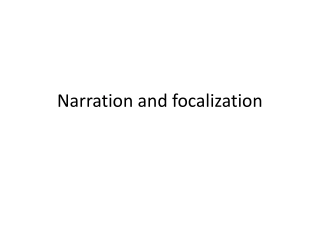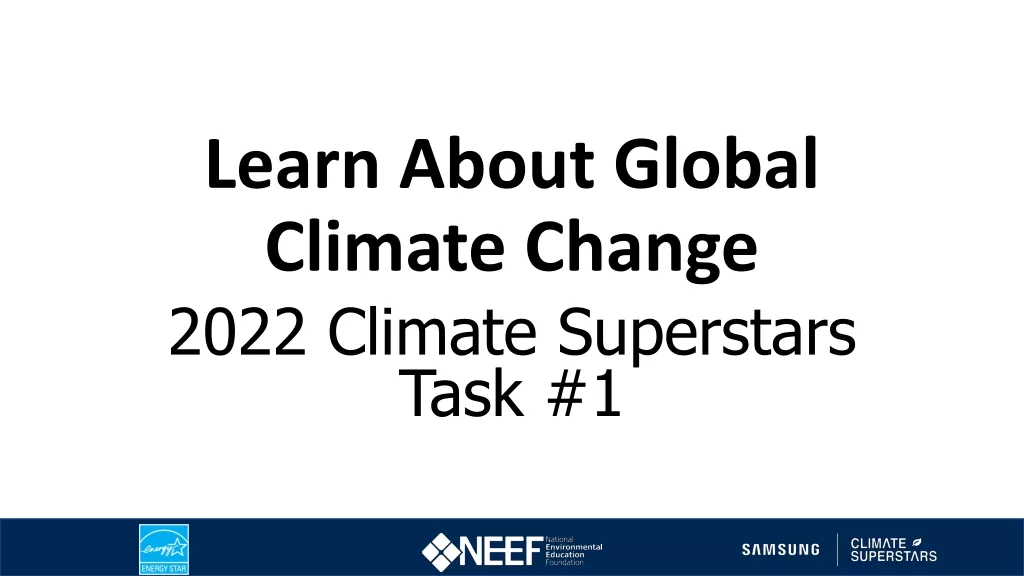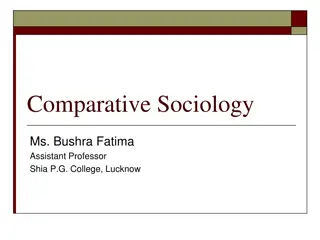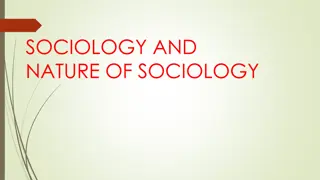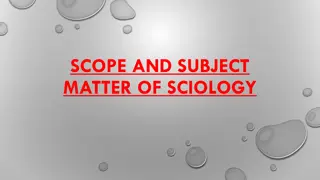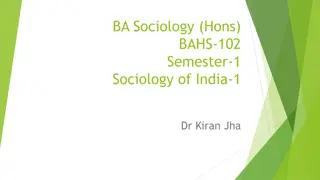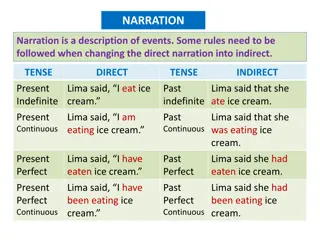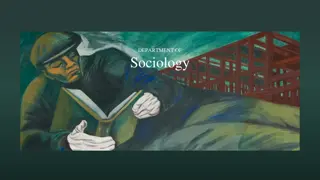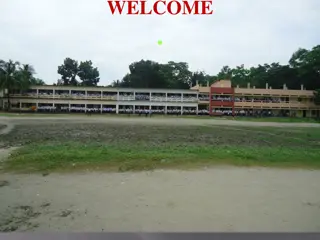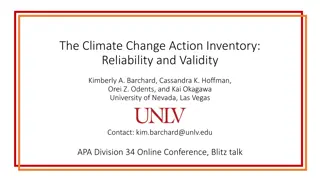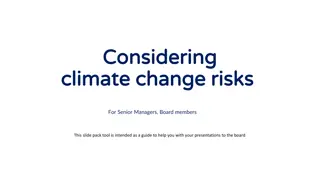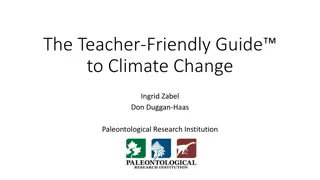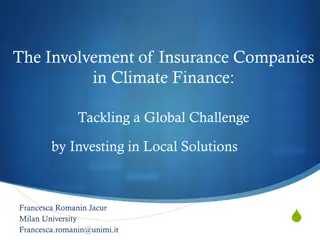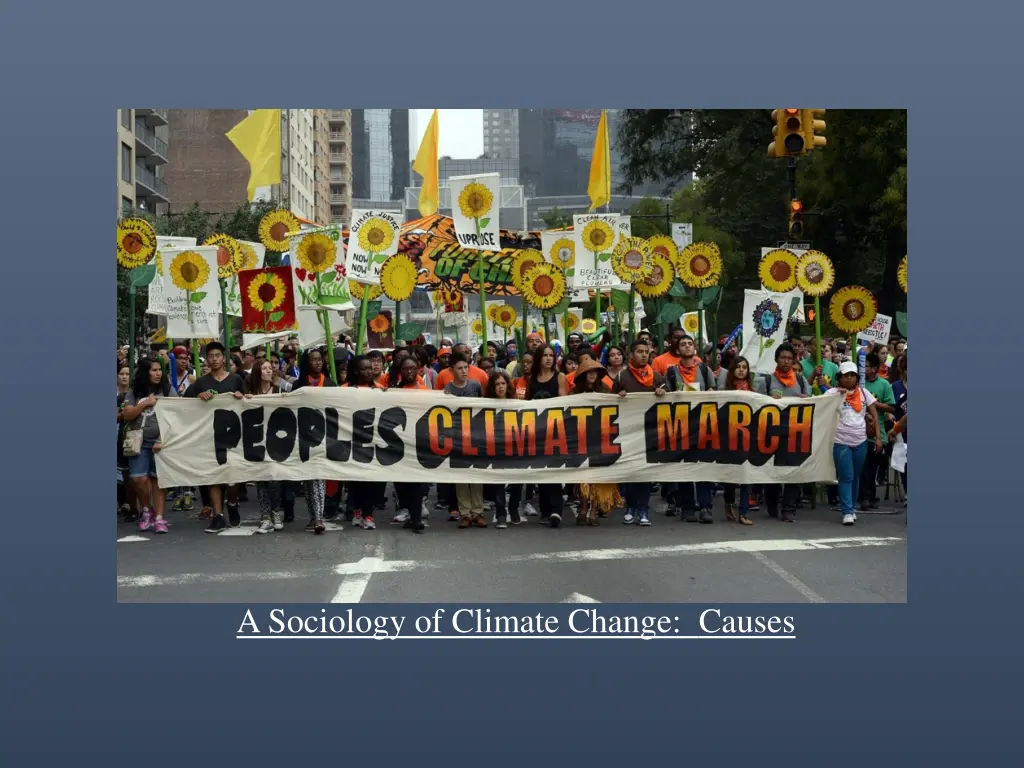
Societal Causes of Climate Change: Insights from Sociology
Explore the societal causes of climate change through the lenses of sociology, tracing the shifts from feudalism to urban industrial capitalism and analyzing the perspectives of influential sociologists like Karl Marx, Emile Durkheim, and Max Weber. Understand the environmental challenges faced by past societies and how they can be relevant today.
Download Presentation

Please find below an Image/Link to download the presentation.
The content on the website is provided AS IS for your information and personal use only. It may not be sold, licensed, or shared on other websites without obtaining consent from the author. If you encounter any issues during the download, it is possible that the publisher has removed the file from their server.
You are allowed to download the files provided on this website for personal or commercial use, subject to the condition that they are used lawfully. All files are the property of their respective owners.
The content on the website is provided AS IS for your information and personal use only. It may not be sold, licensed, or shared on other websites without obtaining consent from the author.
E N D
Presentation Transcript
Causes Climate Change Society
Societal causes of, or drivers of, climate change 1 2 Causes in a green updating of Classical Theory Causes in today s Environmental Sociology literature
Societal causes of, or drivers of, climate change 1 2 Causes in a green updating of Classical Theory Causes in today s Environmental Sociology literature
Emile Durkheim Karl Marx Max Weber
What is this new kind of society? What are its strengths? What are its problems?
In scarce one hundred years more massive and more colossal productive forces than [ were created in all ] preceding generations together. machinery, steam-navigation, railways, electric telegraphs, clearing of whole continents for cultivation, canalisation of rivers, whole populations conjured out of the ground -- Karl Marx
Today we would say these are environmental problems But at the time, they were seen as social problems
greening Classical Theory -- or -- re-narrating Classical Theory
Constructing a causal chain from economic growth to CO2 emissions
https://symphonywavepowerdotcom.files.wordpress.com/2015/12/energy-growth.png?w=525https://symphonywavepowerdotcom.files.wordpress.com/2015/12/energy-growth.png?w=525
http://straighttalkmd.com/wp-content/uploads/2017/01/Manns-hockey-stick.gif
Societal causes of, or drivers of, climate change 1 Causes in a green updating of Classical Theory industrial production + fossil fuels Causes in today s Environmental Sociology literature 2
Societal causes of, or drivers of, climate change 1 Causes in a green updating of Classical Theory the dynamics of capitalist society + fossil fuels Causes in today s Environmental Sociology literature 2
industrial production, yes but also: population consumption
Population: Demography Consumption: The Sociology of Consumption
industrial production, yes but also: population consumption
International Monetary Fund, World Economic Outlook, May, 2000, p. 150
Sociological study of population dynamics: Demography
industrial production, yes but also: population consumption
International Monetary Fund, World Economic Outlook, May, 2000, p. 150
Beyond averages: wealth and income inequality Social class/ Stratification
Norton and Ariely, Building a Better America One Wealth Quintile at a Time, 2011
Saez, Income and Wealth Inequality: Evidence and Policy Implications, 2014
1 % 2 to 20 % Norton and Ariely, 2011
Saez, Income and Wealth Inequality: Evidence and Policy Implications, 2014 Saez, Income and Wealth Inequality: Evidence and Policy Implications, 2014
0.2 to 1 % 0.1 % 2 to 20 % Norton and Ariely, 2011
Social class (inequalities in wealth and income) Inequalities in consumption Inequalities in size of carbon footprint
Confronting Carbon Inequality, Oxfam Media Briefing, Sept 21, 2020, www.oxfam.org
Sociological analysis of the causes of, or drivers of, climate change Re-narrating Classical Theory bring environment back in Environmental Sociology Demography Sociology of Consumption Stratification

